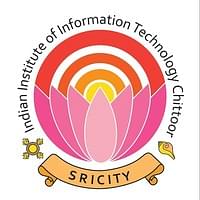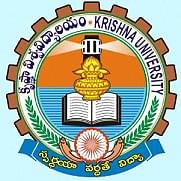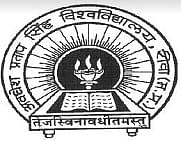Introduction about Ph. D in International Business
Ph.D. in International Business from best college is a prestigious and rigorous academic pursuit focused
on advancing knowledge and understanding within the realms of global commerce,
economics, and management. This doctoral program delves deeply into the
complexities of conducting business across national borders, examining the
intricate interplay of cultural, political, legal, and economic factors that
shape international trade and investment.
Students pursuing a
Ph.D. in International Business typically engage in advanced coursework
covering topics such as international marketing, global finance, cross-cultural
management, international trade policies, and multinational business
strategies. Additionally, they often undertake extensive research projects
aimed at contributing new insights to the field through empirical studies,
theoretical frameworks, or innovative methodologies.
One of the
distinguishing features of a Ph.D. program in International Business is its
interdisciplinary nature. Drawing from various fields such as economics,
sociology, political science, and management, students are encouraged to adopt
a holistic approach to understanding global business phenomena. This
multidisciplinary perspective equips scholars with the tools to address complex
challenges facing multinational corporations, policymakers, and international
organizations in an increasingly interconnected world.
Moreover, a Ph.D.
in International Business prepares graduates for careers in academia, research
institutions, government agencies, international organizations, and
multinational corporations. Whether shaping global business practices through
academic research or advising organizations on strategic decision-making in the
international arena, holders of this prestigious degree play a vital role in
advancing our understanding of the global economy and fostering sustainable
development on a global scale.
What is admission process for Ph. d in
International Business ?
The admission process for Ph.D. in International Business typically involves several steps
and requirements. While specific procedures may vary depending on the
institution, here's a general overview:
Research Programs
and Institutions: Begin by
researching Ph.D. programs in International Business offered by various
universities. Consider factors such as faculty expertise, research focus areas,
program reputation, and resources available for doctoral students.
Eligibility
Criteria: Review the
eligibility requirements for each program. Generally, applicants must hold a
master's degree in a related field such as business administration, economics,
international relations, or a related discipline. Some programs may consider
applicants with exceptional academic backgrounds but without a master's degree.
Standardized Tests: Many universities require applicants to
submit scores from standardized tests such as the GRE (Graduate Record
Examination) or GMAT (Graduate Management Admission Test). Check the specific
requirements of each program regarding which tests are accepted and the minimum
score thresholds.
Academic
Transcripts: Prepare
official transcripts from all undergraduate and graduate institutions attended.
These transcripts should demonstrate strong academic performance, particularly
in relevant coursework.
Statement of
Purpose: Write a compelling
statement of purpose (SOP) outlining your academic background, research
interests, career goals, and reasons for pursuing a Ph.D. in International
Business. This is your opportunity to articulate your motivations and
demonstrate how your research interests align with the program's offerings.
Letters of
Recommendation: Secure
letters of recommendation from academic or professional references who can
speak to your qualifications, research potential, and ability to succeed in a
doctoral program. Typically, three letters are required, but check the
program's specific requirements.
Research Proposal: Some programs may require applicants to
submit a research proposal outlining their intended research topic, objectives,
methodology, and significance. This demonstrates your readiness to engage in
independent scholarly inquiry.
CV/Resume: Prepare a comprehensive curriculum vitae
(CV) or resume highlighting your academic achievements, research experience,
publications (if any), professional experience, and relevant skills.
Application
Submission: Complete the
online application form provided by the university or department. Ensure that
all required documents, including transcripts, test scores, statement of
purpose, letters of recommendation, and any additional materials, are submitted
by the application deadline.
Interview (if
applicable): Some programs
may require an interview as part of the selection process. This interview
allows the admissions committee to assess your fit for the program, discuss
your research interests, and clarify any aspects of your application.
Admission Decision: After reviewing all applications, the
admissions committee will make decisions based on various factors, including
academic qualifications, research potential, fit with the program, and
available resources. Successful applicants will receive an offer of admission.
Funding and
Scholarships: Investigate
funding opportunities, including scholarships, grants, fellowships, and
assistantships, offered by the university or external sources to support your
doctoral studies.
It's essential to
carefully review the specific requirements and deadlines for each Ph.D. program
in International Business you're considering and to prepare your application
materials thoughtfully to maximize your chances of admission.
What is eligibility for Ph. d in International
Business ?
The eligibility criteria for Ph.D. in International Business can vary depending on the
institution and program requirements. However, here are some common eligibility
criteria you might encounter:
Educational
Background: Applicants are
typically required to have a master's degree in a relevant field such as
business administration, economics, international relations, management,
finance, or a closely related discipline. Some programs may accept exceptional
candidates with a bachelor's degree, especially if they demonstrate outstanding
academic and research potential.
Academic
Achievement: Strong
academic performance in previous undergraduate and graduate coursework is
usually expected. This may be assessed through the submission of academic
transcripts, which should demonstrate proficiency in relevant subjects such as
economics, finance, management, statistics, and research methods.
Standardized Test
Scores: Many institutions
require applicants to submit scores from standardized tests such as the GRE
(Graduate Record Examination) or GMAT (Graduate Management Admission Test). The
specific score requirements may vary between programs, so it's essential to check
the requirements of each institution.
Language
Proficiency: If the
language of instruction at the institution is not your native language, you may
be required to demonstrate proficiency in the language, usually through
standardized tests such as the TOEFL (Test of English as a Foreign Language) or
IELTS (International English Language Testing System).
Research Experience
and Potential: While not
always mandatory, having research experience, such as participation in research
projects, publications, or presentations at conferences, can strengthen your
application. Additionally, demonstrating a clear research interest and
potential for contributing to the field of international business through your
proposed research topic or statement of purpose is important.
Letters of
Recommendation: Most Ph.D.
programs require applicants to submit letters of recommendation from academic
or professional references who can attest to their academic abilities, research
potential, and suitability for doctoral studies.
Statement of
Purpose: A well-written
statement of purpose (SOP) is usually required, outlining your academic
background, research interests, career goals, and reasons for pursuing a Ph.D.
in International Business. This allows the admissions committee to assess your
motivations and fit for the program.
Interview (if
applicable): Some programs
may require an interview as part of the admissions process. This interview may
be conducted to further assess your qualifications, research interests, and
suitability for the program.
It's important to
note that eligibility criteria can vary between institutions and may change
over time, so it's crucial to thoroughly review the specific requirements of
each Ph.D. program you're interested in applying to. Additionally, reaching out
to the admissions office or program coordinator for clarification on any
eligibility requirements is recommended.
What is syllabus for Ph. D in International
Business?
The syllabus for Ph.D. in International Business can vary significantly depending on the
specific program, the focus areas of faculty expertise, and the research
interests of individual students. However, here's a broad overview of the
topics and areas of study that are commonly included in such a program:
Core Courses: These courses provide a foundational
understanding of key concepts and theories in international business and
related fields. Examples of core courses may include:
International
Business Theory and Frameworks
International
Economics
Global Strategy
Cross-Cultural
Management
International
Marketing
Global Supply Chain
Management
International
Finance
International Trade
Policy
Research Methods: Ph.D. programs typically include courses
focused on research methodologies and techniques to prepare students for
conducting independent scholarly inquiry. These courses may cover:
Quantitative
Research Methods
Qualitative
Research Methods
Research Design and
Data Collection
Statistical
Analysis
Econometrics
Survey Design and
Analysis
Case Study Research
Specialized
Elective Courses: Students
may have the opportunity to tailor their coursework to align with their
research interests and career goals by selecting elective courses in specific
areas. These elective courses may include topics such as:
Emerging Markets
International
Entrepreneurship
Global Corporate
Social Responsibility
International
Business Law and Ethics
Technology and
Innovation Management in a Global Context
International Human
Resource Management
International
Business Negotiation
Seminar Series: Many Ph.D. programs incorporate seminar
series or colloquia where students and faculty engage in discussions, present
their research findings, and critique scholarly work. These seminars provide
opportunities for intellectual exchange, networking, and professional
development.
Comprehensive
Examinations: Some programs
require students to pass comprehensive examinations covering core areas of
study and research methodologies before advancing to the dissertation stage.
Dissertation
Research: The bulk of a
Ph.D. program in International Business is typically dedicated to conducting
original research and writing a doctoral dissertation. Students work closely
with faculty advisors to develop a research topic, conduct empirical studies or
theoretical analyses, and contribute new knowledge to the field.
Teaching Experience
(Optional): Some programs
offer teaching assistantships or opportunities for students to gain teaching
experience by assisting in undergraduate courses related to international
business.
Professional
Development Workshops:
Ph.D. programs may include workshops or seminars focused on professional
development skills such as academic writing, presentation skills, grant
writing, and job market preparation.
It's important to
note that the specific courses and requirements can vary between institutions
and may be subject to change. Students should consult their program's handbook
or curriculum guidelines for the most accurate and up-to-date information on course
offerings and requirements. Additionally, students may have the flexibility to
pursue interdisciplinary coursework or collaborate with faculty from other
departments or schools within the university to enrich their educational
experience.












